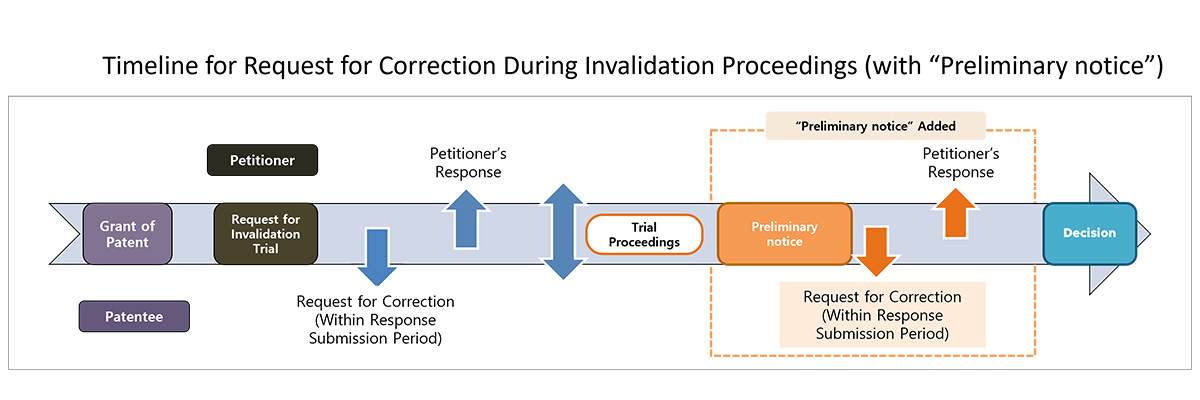The Intellectual Property Trial and Appeal Board (IPTAB), under the Korean Intellectual Property Office (KIPO), is actively pursuing legislative revisions to improve the invalidation trial system with the main focus on introducing a preliminary notice of invalidation decision and strengthening trial procedures. These improvements aim to maintain high-quality patents and enhance the stability of patent rights at the trial stage.
The core of the proposed revision is the introduction of the “preliminary notice of invalidation decision.” According to the revision, if the trial board determines that the invalidation claim has merit, it will notify the patentee in advance before issuing an invalidation decision. This allows the patentee an opportunity to maintain their rights in a valid state by filing a request for correction.

The trial procedures will also be improved to proceed in a more rigorous and efficient manner. Petitioners seeking to invalidate a patent will be required to submit more specific and well-substantiated evidence and to strictly comply with prescribed deadlines for evidence submission. In addition, the invalidation trial process will be refined to identify key issues prior to the oral hearing, thereby ensuring that both parties have sufficient opportunities to present their arguments and supporting evidence in a timely manner. These procedural improvements are expected to minimize unnecessary delays and promote more focused, issue-oriented trials.
The procedures concerning claim construction will also be strengthened. The petitioner in an invalidation trial will be encouraged to present their arguments regarding claim construction at the time of filing the trial request. In cases where discrepancies or ambiguities arise regarding the interpretation of claims, both parties will be granted additional opportunities to submit further arguments and supporting evidence. This is expected to improve the accuracy and fairness of the trial.
These reforms aim to clarify the standards and procedures for determining patent validity, enhance the predictability of the trial system, and broaden the patent holder’s opportunity for claim correction. Ultimately, the improvements are expected to promote the maintenance of high-quality patents and strengthen the overall effectiveness of patent right enforcement.
The legislative bill reflecting these changes is scheduled to be proposed in the second half of this year.


